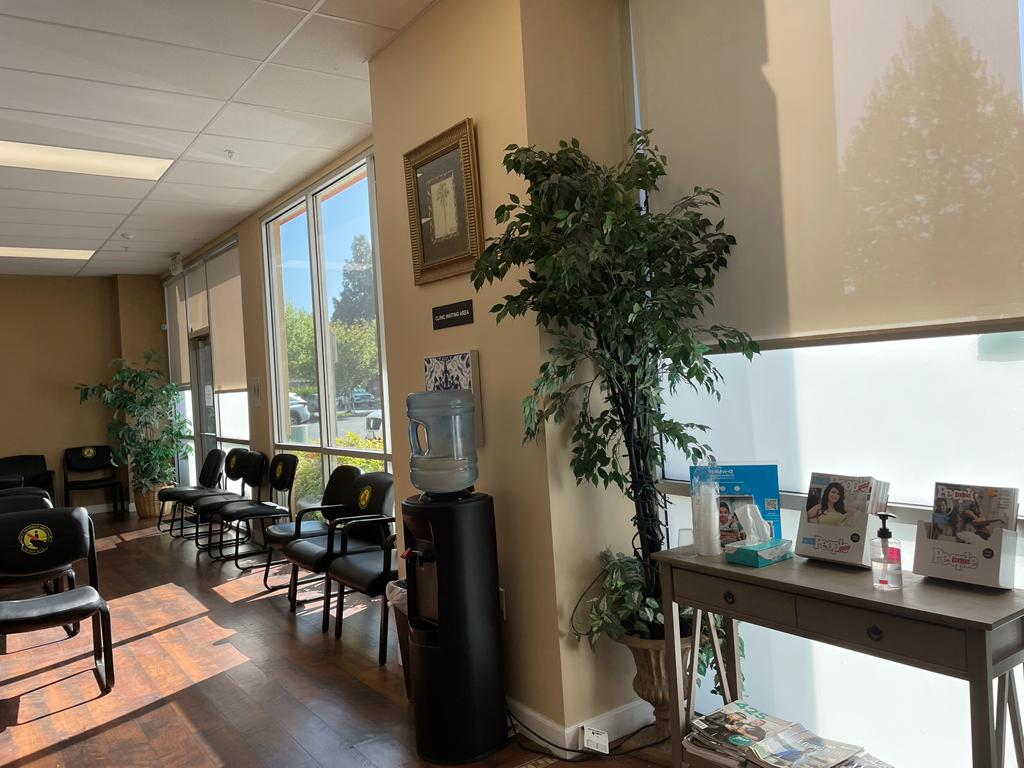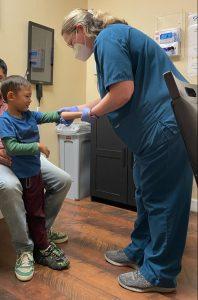
I started to write this post a year ago, as I was wide awake in the middle of the night, in between coughing fits from a nasty bout of RSV and monitoring my son’s breathing from what thankfully turned out to be a non-anaphylactic allergic reaction. Alas, I never quite completed my thought, or perhaps it’s my procrastination due to PTSD, but I knew I had to keep writing about my experiences as a food allergy parent. This is not only an important outlet for my mental well-being, it is also critically important to continue to heighten awareness surrounding food allergy safety. Allergies are often considered a dismissed chronic illness with widespread assumptions – and even worse, a topic that many onlookers are often too quick to claim expertise of.
I’ve been given much-unwarranted advice about how to get rid of my child’s food allergies – from spreading my breastmilk onto my baby’s skin to feeding him the allergen until he “gets over it”. Many times have I had people tell me that they, too, have an allergy when it was more likely a sensitivity. Too frequently have I had someone insinuate that I gave my child his allergies because I “didn’t eat everything” or “ate junk” whilst I was pregnant. Too casually have I had someone instruct me that “a little bit doesn’t hurt”. Too often I’ve had to restrain myself from barking back:
“That’s murder! A little bit does hurt and a little bit does kill!”
While we are super thankful that many people are aware of nut allergies, there is still much, much, much room for more awareness and understanding of the dangers of food allergies. Did you know that Sesame recently became a top allergen? It joined the list of the Top 10 most common allergens with Wheat/Gluten, Eggs, Dairy, Peanuts, Tree Nuts, Fish, Crustaceans, Shellfish, and Soy. While these 10 foods are most commonly diagnosed, you can be allergic to anything and you can still develop new allergies well into your adulthood.
Children with food allergies rely on adult(s) to stay alive.
 According to the Food Allergy Research Education (FARE) organization, 32 million Americans suffer from life-threatening allergies. This accounts for a 377% increase in the diagnosis of anaphylactic food reactions between 2007 and 2016. Of this population, 1 in 13 are children who rely on parents, caregivers, teachers, and school administrators to keep them safe while at school. These are children with food allergies (FA) which are most often times anaphylactic (ANA), and whose lives can be taken away in a matter of minutes. Children who are relying on us adults to prevent, to react, and to monitor for symptoms that may escalate within a matter of seconds to a few hours or even days.
According to the Food Allergy Research Education (FARE) organization, 32 million Americans suffer from life-threatening allergies. This accounts for a 377% increase in the diagnosis of anaphylactic food reactions between 2007 and 2016. Of this population, 1 in 13 are children who rely on parents, caregivers, teachers, and school administrators to keep them safe while at school. These are children with food allergies (FA) which are most often times anaphylactic (ANA), and whose lives can be taken away in a matter of minutes. Children who are relying on us adults to prevent, to react, and to monitor for symptoms that may escalate within a matter of seconds to a few hours or even days.
This is why I stop at nothing to ensure my child’s safety.
This is why I’ve put my dynamic career on hold since his FA diagnosis, so I can be his main trusted caretaker and cook.
This is why I cut my own entertainment expenses, so I can afford to buy him meals he can eat and lotions that will keep his eczema at bay.
This is why I moved to the suburbs after being a lifelong city girl, so I can ensure he gets into a good school with staff who will take his allergies seriously.
This is why I go back and forth to his school 5 times a day, so I can be there during snack and lunch periods.
This is why I plan and start packing for trips months in advance, so that I can ensure he has food to eat and we have the closest grocery stores + ERs mapped out.
This is why I always carry a fanny pack on me, even for a short walk around the neighborhood, so that he has epi-pens accessible at all times.
This is why I stay during all camp and extra-curricular activities, so that I can be his first responder.
This is why I make a 4-hour drive bi-weekly, so that he can receive the best possible allergy treatments to build tolerance.
This is why I am always the last one to fall asleep in our house, so I can check for delayed reactions.
This is why I bake even though I dislike baking, so that he can have safe treats.
I do what I do to keep my child alive.
A piece of good news for you FA parents out there – Zacky’s Bill, a bill inspired by 9-year-old Californian Zacky, was signed into law. Zacky’s bill directs the Department of Education to include state and federal resources, methods to initiate individualized food allergy management and prevention plans, and other ways to minimize the risk of food anaphylaxis in school, hopefully providing a more inclusive and safer environment for all kids, especially those with food allergies.














